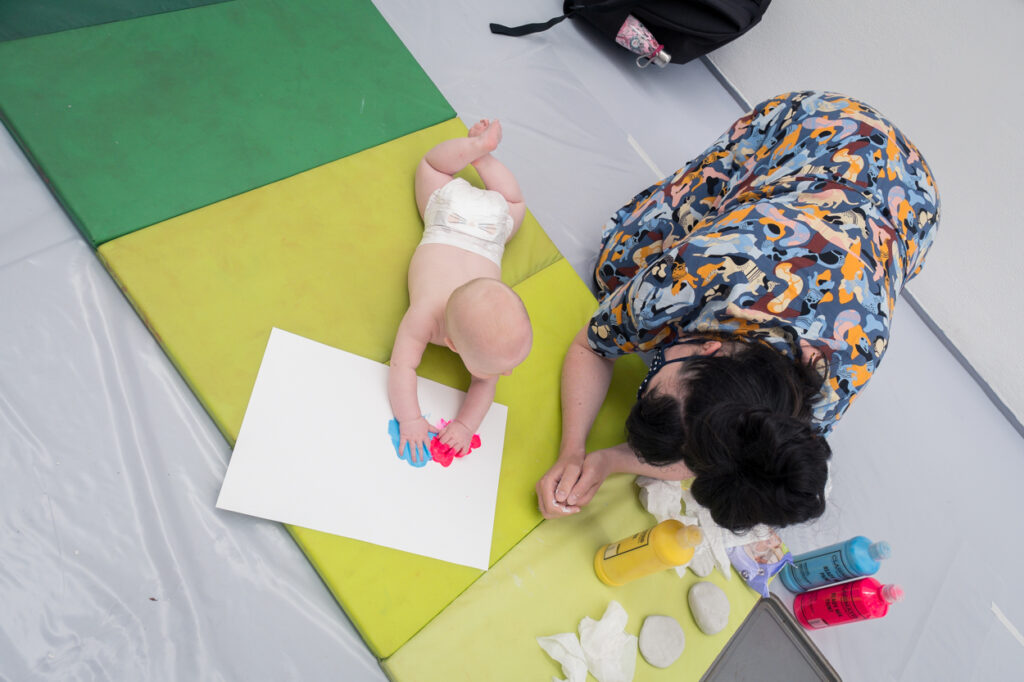A PROJECT aiming to improve children’s wellbeing through participation in art has received funding to expand its work to art galleries across Scotland.
Art at the Start is led by art therapist Vicky Armstrong and experimental psychologist Dr Josephine Ross, both from the University of Dundee’s Psychology department.
The collaboration examines the impact arts participation can have upon the social development of young children, their interaction with parents and guardians, and their behavioural patterns.
The team have received £177,560 from the Arts and Humanities Research Council (AHRC) as part of a £1.2 million initiative to unleash innovative ways of using culture and nature to improve health and wellbeing.

The funding will allow them to embed arts therapists at four core sites across the country – Dundee Contemporary Arts, Tramway (Glasgow), Carnegie Library & Galleries (Dunfermline) and Taigh Chearsabhagh Museum & Arts Centre (Uist).
The therapists will offer targeted interventions for vulnerable families, in addition to broader outreach to traditionally under-served groups.
The University is hoping this intervention will have a long-term impact on the lives of participating families.
Dr Ross said: “We have been running very successful Art at the Start sessions at Dundee Contemporary Arts, and expanding this project to these new venues in other areas of Scotland will help us show that art making is creating change in a measurable way.
“Art therapy is a great way to help children bond with their parents and other adults in their lives.
“We are interested in the impact that participation in art can have upon the social wellbeing of young children and how shared art experiences may help to build strong attachment relationships.
“We are exploring how engagement contributes to a child’s individual development, and how we can describe what is happening when making art.”
The AHRC programme will see researchers working in collaboration with communities across the UK to establish how cultural and natural interventions can be placed at the service of public health.
The projects will generate evidence to support the national rollout of place-based approaches to public health, growing an evidence base for positive change.
Led by AHRC, in partnership with the National Centre for Creative Health, the Medical Research Council and Natural Environment Research Council have also partnered on this £1.2 million programme.
Professor Helen Chatterjee, AHRC’s Health Disparities Programme Director, said: “The Covid-19 pandemic has highlighted stark health inequalities across the UK.
“Access to local cultural activities and natural spaces can play an important role in health and wellbeing.
“This programme takes a place-based approach to public health, exploring new avenues to tackle health inequalities across the country.
“By connecting research directly with decision making at local, regional and national levels, we hope to build a new scalable model that leads to healthier communities across the whole of the UK.”
